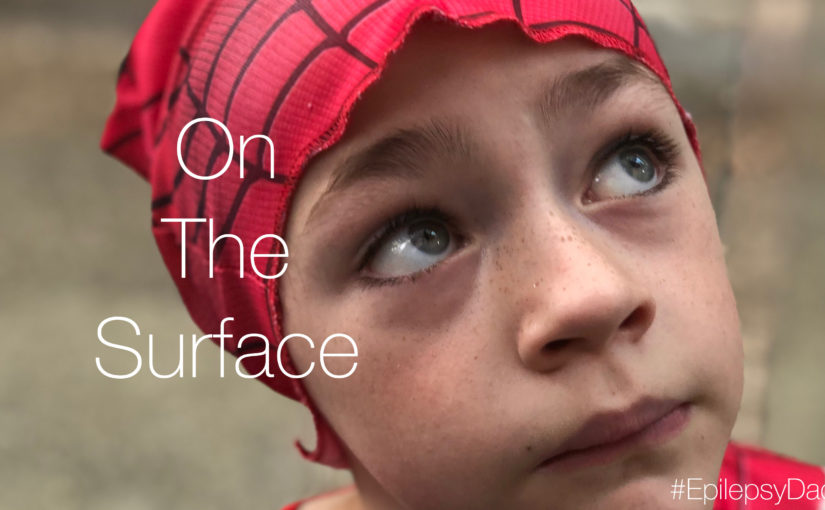Recently, on the way to school, my son told my wife that he wasn’t feeling good. She turned around and took him home where he slept for three hours.
Usually, he will try to push through. I don’t know if he doesn’t recognize what is happening in his body or if he is too stubborn or eager to please, but he goes dangerously beyond his limits until he crashes. We have spent so much time picking up the pieces and putting him back together after he does.
My son started having seizures before he developed a reference or the vocabulary to describe what he was feeling. He only knows seizures, and medications, and side effects, and fatigue. There was never an absence of these things that he can recall and contrast when it happens to him today. For him, that is normal.
We have spent years watching him closely and trying to be the external monitor of his condition. We ask probing questions when we suspect that he is off, but he often answers “yes” as if he assumes we know what he is feeling or can describe what he can’t. But we only see the external signs. We can only see what is on the surface. And our vocabulary and ability to describe what is happening to him is as limited as his.
Me: “Do you have a headache?”
My son: Yes.”
Me: “Do you know what a headache is or feels like?”
My son: “No.”
I write every day. At work, I use words to describe complex systems. But the words that I know seem inadequate to describe what I can only imagine he is feeling. It’s words and concepts in another language that I am just beginning to understand after five years. We’re trying to use that language to communicate but too often things are lost in translation.
It’s another one of the many frustrating things about being the parent of a young child with epilepsy. I want to make the seizures go away, but I can’t. I want to eliminate the side effects of his medication, but I can’t. At a minimum, I want to understand what he is going through so that I can help him but there is so much about his condition that is invisible to us. It’s a terrible feeling of helplessness.
I’m hopeful that, as he did on the way to school, he’s starting to build awareness of what is happening inside his body and vocalizing it. Becoming an advocate for himself and expressing his needs will be critical for him to be able to navigate a world that is not always kind or forgiving or tolerant of people who are different.
For the past five years, we have been the monitors of his condition and the ones expressing his voice. As much as I felt ill-equipped for the role, it was necessary because my son was not able to do it himself. It made me feel needed and useful instead of focusing on my inability to find a way to make the seizures stop. I am comfortable filling that role but I can only account for what is on the surface. There is so much more to him and his condition than what I can see.
The reality is that the more I take on that responsibility, the longer it will take my son to learn to do it himself. It will take longer for those symptoms and feelings that exist below the surface to reveal themselves. And it will take longer for him to get what he needs because he won’t learn to put his needs out there. At some point, the help I am trying to give him becomes the thing holding him back.
Reality and I don’t always agree, but it is usually right.

Dad Dave,
This is very insightful. As you slowly stand down, your son will stand up on his own.
As he develops he will be more aware of his feelings. It will be a relief to you and your wife.
We have been where you are.
I hope you get to where we are now. Rose is GREAT!
Bless your family.